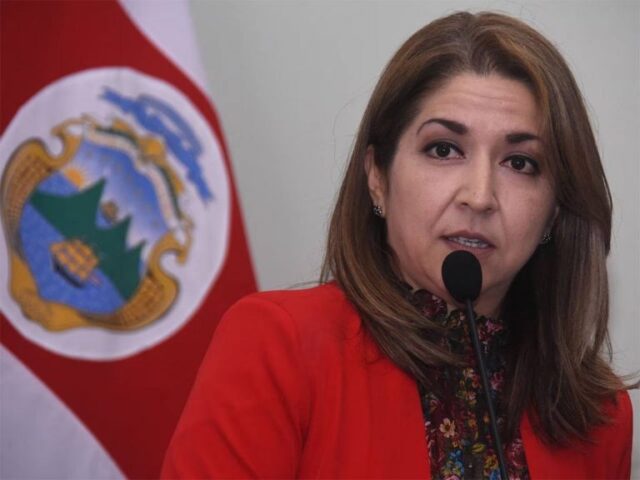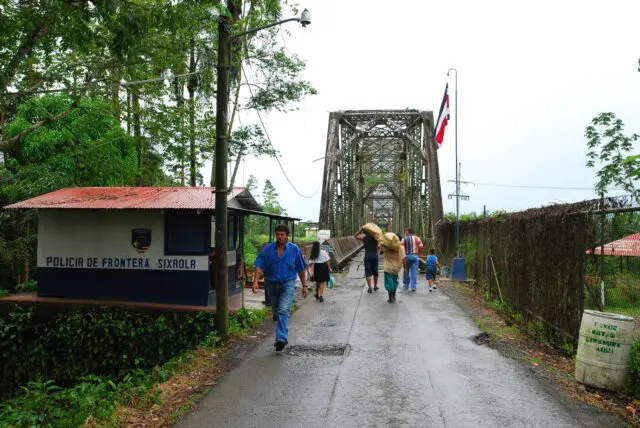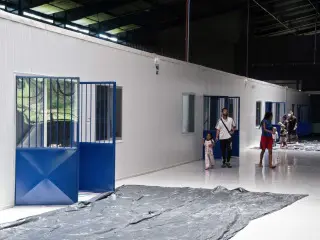Migration can generate remarkable benefits, promoting economic growth, development, and a multi-cultural society at large. Unfortunately, the evolving migration pattern in Central America raises significant issues. The latest instance of Costa Rica and Panama setting migration policies has brought this issue sharply into focus. A critical examination of the situation, and how both countries are handling the crisis, reveals a measure of both urgency and steadfastness.

Recently, Costa Rica implemented a stringent regulation forbidding migrants from engaging in any salaried activity. This policy comes in light of the transit immigration status adopted by both countries to handle the ongoing migratory flow. Centro de Atención Temporal a Migrantes (Catem), a care center for migrants, was established near the Costa Rica-Panama border as part of a collaborative effort. The objective was clear: providing migrants medical care, food, and necessary respite as they traverse through the countries.
Since October 10th, approximately 14,000 migrants have been moved from Panama’s southern to Costa Rica’s northern border. Even though a ticket to continue the journey costs $30 per person, not every migrant can afford this. Consequently, many have to stay back at the center until they can pay for their onward journey.
While the policy aims to offer temporary assistance to the migrant wave affecting Costa Rica, it’s potentially more consequential than it seems. The Costa Rican immigration entity reports there are now 524 migrants in Catem, many of whom are in dire straits after crossing Panama’s perilous Darién Gap. Barring those in transit from performing any remunerated work, to ensure law and order in border towns highlights the multiple dynamics involved – socio-economic, juridico-legal, and humanitarian.

Beyond the immediate situation, Costa Rica is considering adjusting specific aspects of its regulatory framework and institutional organization for long-term migration management. By doing so, the government is laying the groundwork for a more sustainable response to the migration crisis, acknowledging that the problem isn’t fleeting or incidental, but structural and pervasive.
On a regional level, Costa Rica’s second vice president, Mary Munive, is scheduled to attend a critical migration-focused meeting organized by Mexico’s President Andrés Manuel López Obrador on October 22nd. This event illustrates the broad regional concerns about the ongoing migration crisis spanning from Ecuador to Canada. Migrants’ exposure to the deadly Darién jungle also underlines the severity of the situation.
The planned meeting seeks to stimulate dialogue on collective efforts to expand development capabilities and handle the migration phenomenon from a posture of humanitarianism and solidarity. We expect states like Venezuela, Colombia, Ecuador, El Salvador, Honduras, Guatemala, Haiti, Cuba, Panama, Belize, and, of course, Costa Rica to participate.

The upcoming meeting indicates the urgency of a collective approach and commitment to resolving this dire situation. It’s a testament to different countries’ willingness to share their experiences, considering the diverse migration patterns, and devising effective policies in response.
However, it’s evident that a one-size-fits-all policy won’t successfully address the deeply ingrained migration issue. Differences exist in each country’s social, political, and economic realities that affect migration. Therefore, future interventions should be succinct, innovative, and multifaceted to deal with migrant flows effectively.
Coming back to Costa Rica’s regulation, while it offers a temporary solution to their migration issue, it also exposes the necessity for a detailed, comprehensive migration policy framework. Providing basic facilities to migrants is commendable, but without a framework to allow migrants to engage in authorized economic activities, the governments may find themselves facing a cycle of perennial problems.
Ultimately, the Costa Rica-Panama migration policy reveals much about the complexity of managing migratory flows. The forthcoming meeting in Mexico could prove instrumental in driving the necessary collective action to address the migration crisis in Central America. Ideally, the deliberations and outcomes from this meeting will inform new policies that address the root causes of this crisis, rather than treating just its symptoms.
The essence lies not in curbing migration per se but managing it strategically, humanely, and pragmatically. Only through such an approach can we harness the benefits and address the challenges of migration, fostering a win-win situation for all concerned.

Abdul Rafay Afzal: He is from Lahore, Pakistan currently a law student at Liverpool John Moores University, UK. He writes perceptive columns on geopolitics, international relations, and legal affairs etc. in more than 8 countries providing unique insights into the global landscape in different Pakistani and International Newspapers and Media outlets in English & Urdu languages. Email:[email protected] Instagram: @arafzal555

For those who have experienced shifts in consciousness and know that more peace, joy, and love awaits in a better living environment. A bold shared vision. A living community and hub for innovation. A sustainable ecosystem for living and working. A model for the new future.
